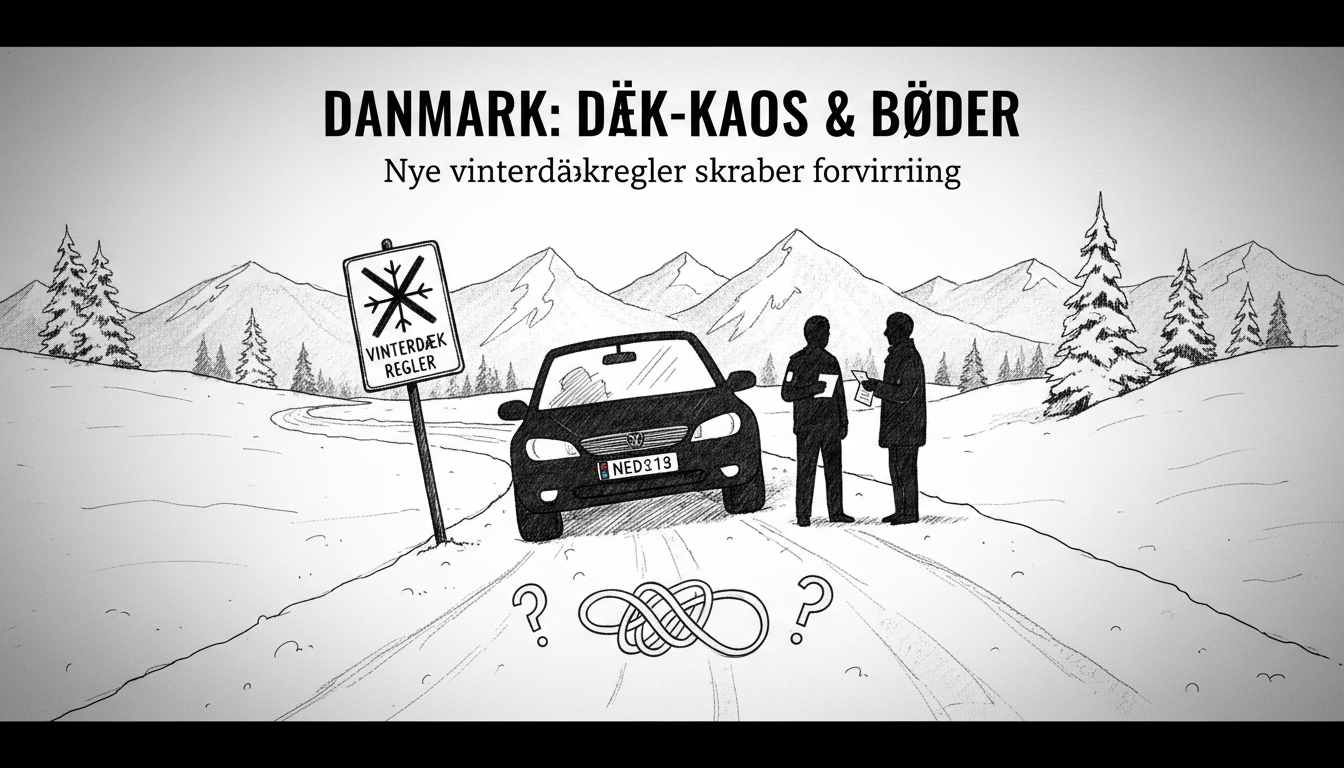Danish police have started issuing fines under updated winter tire regulations. The first penalties were handed out this past weekend as cold weather arrived across the country. Drivers now face potential fines of 1,000 kroner per tire if their vehicles are deemed to have 'clearly unsuitable tires' for road conditions.
The legal changes took effect earlier this year but only became relevant with recent winter weather. Police now have authority to issue immediate fines when they judge tires inappropriate for current driving conditions. This represents a significant shift from previous enforcement approaches.
According to road safety authorities, tires marked 'M+S' qualify as approved winter tires. For severe winter conditions with snow on roads, tires with '3PMSF' markings are recommended. The responsibility falls entirely on drivers to ensure their vehicles have appropriate tires for weather conditions.
However, Denmark's major motorist organization FDM has raised concerns about the new guidelines. The regulations lack clear definitions about what constitutes winter driving conditions or precisely which tires qualify as suitable in all situations. This creates uncertainty for drivers trying to comply with the law.
Enforcement appears to depend heavily on individual police officers' judgment. In one recent case near Skive, officers fined a driver with summer tires after rain fell near freezing temperatures. No accident occurred, yet police determined the tires were clearly unsuitable.
FDM's political director Torben Lund Kudsk questioned this application. He stated the law's notes specifically indicate fines should not be issued in gray area cases. Penalties should only apply when tires clearly pose safety risks. The Skive case raises questions about consistent enforcement across different police districts.
Insurance implications add another layer of concern. Experts advise drivers to check their insurance policies for specific tire requirements. Anne Garde Slothuus from Insurance Information Denmark explained that liability insurance typically covers accidents unless gross negligence occurs. However, comprehensive coverage might be denied if police document unsuitable tires during an accident investigation.
The regulatory changes have created busy conditions at auto shops nationwide. Many drivers are rushing to install proper winter tires to avoid potential fines and insurance complications. The confusion highlights the challenges of implementing new traffic regulations without clear guidelines for both drivers and enforcement officers.
This situation reflects broader pattern in Nordic traffic regulation where safety intentions sometimes outpace practical implementation. Similar debates have occurred in Sweden and Norway when introducing new vehicle requirements. The key challenge remains balancing road safety with clear, predictable rules that drivers can reasonably follow.

